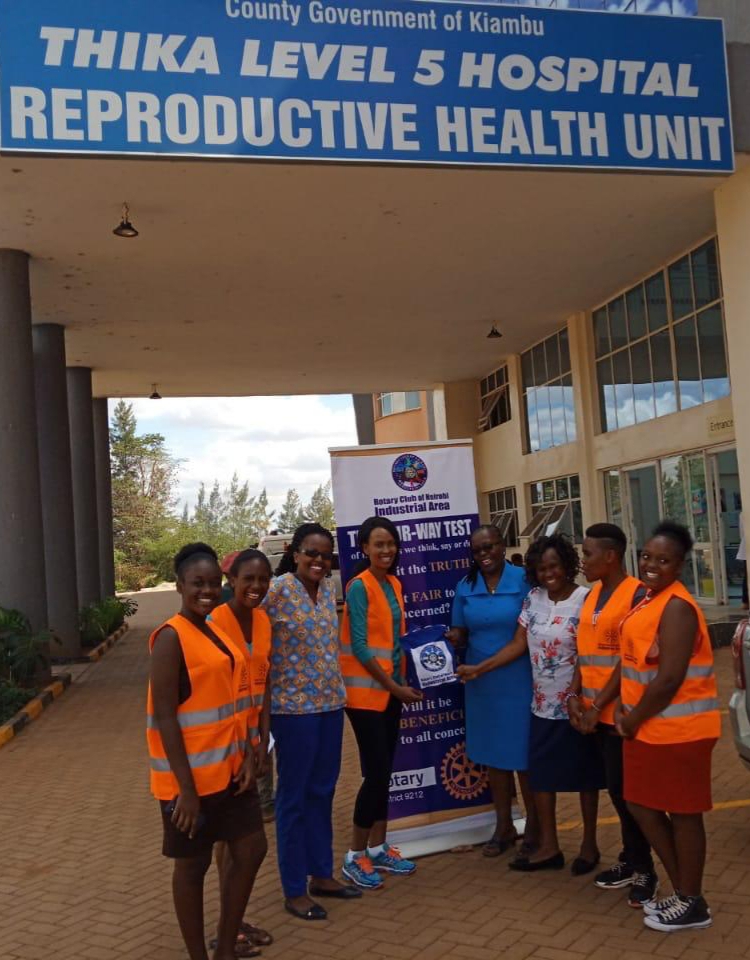The Untold Stories of Living With FISTULA

An obstetric fistula is a hole between the vagina and rectum or bladder that is caused by prolonged obstructed labour, leaving a woman incontinent of urine or faeces or both. Thousands of women across Sub-Sahara Africa who are living with Obstetric Fistula cannot lead a normal life. Isolation and social segregation is their daily reality; they find themselves ostracized and disowned by their own families and the community.
This creates a massive psycho-socio impact on the quality of life the patients live and curtails their contribution to their families, nurturing their children and actively participating in the communities in which they live.
Although obstetric fistula has been eliminated in industrialized countries, it continues to afflict the most impoverished women and girls in the developing world, mainly those in rural and remote areas. The World Health Organization records that Obstetric Fistula affects between 50,000 to 100,000 women worldwide each year.
In Kenya, two women get Obstetric Fistula per 100 births. This results in 2,400 new cases annually, according to data provided by AMREF Health Africa.
One of such women is Grace.
When Grace delivered her last born in 2015, this marked her onset of sleepless nights and slowly, she turned into a victim of obstetric fistula owing to the social stigma associated with the condition.
Unlike her previous deliveries, something was amiss this time round; her menstrual cycle toke a nosedive for the worst. First, she missed her periods for almost a whole year and when they finally came, they would flow for about two weeks, cease momentarily and appear again. This inconsistency pushed her to seek medical attention and initial CT scans revealed that she had developed a cyst in the stomach. After surgical intervention to separate her uterus from her urinary system, Grace could not control her bowel movements and that’s when she discovered that she had developed Obstetric Fistula.
“…It’s a terrible condition. People could smell me coming from far and they quickly disperse to avoid the stench. I was constantly leaking urine…”
Grace’s story is one too common with the ladies currently admitted at Thika Level 5 Hospital to undergo a free medical camp sponsored by a collaborative effort between the Rotary Club of Nairobi Industrial area, AMREF and British Chamber of Commerce Kenya
The noble initiative started on 7th September 2019 and when it folded up its operations, the number of women requiring surgical repair services was staggering; Of the 60 women who had been screened for Obstetric Fistula, 21 were admitted on various Fistula related complications with 18 undergoing successful surgeries and the rest treated and discharged.
A major point of concern for the organizers of this initiative was that the average age of the patients was 23years.
The women streamed to the facility from far and wide; Gilgil, Nyandarua, Machakos, Muranga, Nairobi, Nakuru, Embu, Kilifi as well as Kiambu County, after hearing about the Free Medical camp through Social Media and local radio stations.
According to the AMREF Health Africa, the current capacity for fistula surgical repair services in Kenya is less than 1000 patients every year or less than 50 per cent of the estimated annual incidence, an indication that Kenya is in dire need of medical personnel trained in management of female genital fistulae including prevention, repair and reintegration back into the society. Behind these damming statistics lays the story; women and girls in our communities who are too ashamed and emotionally broken by this condition.
Preventing and managing Obstetric Fistula will go a long way in contributing towards the sustainable development goal of improving Maternal Health. Rotarians from Rotary Club of Nairobi Industrial Area, who participated in this event, expressed their delight witnessing women get their dignity restored. They also donated re-usable pads and adult diapers to the fistula patients.
Indeed, collaboration and partnerships between different organizations and institutions will help in the reduction of stigma associated with fistula for thousands of women suffering from this condition in Kenya.




